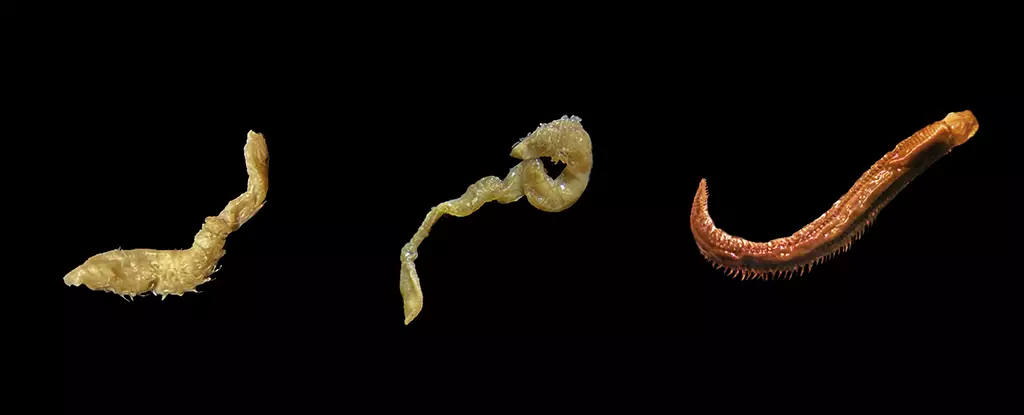Surviving in the harsh conditions of Antarctica is no easy feat, especially for marine organisms. Recent research has shed light on an intriguing survival mechanism employed by some marine worms in this freezing environment. These worms have developed a symbiotic relationship with specific bacteria that produce natural antifreeze compounds to help them endure the cold temperatures.
The study, conducted by a team of researchers from various institutions in Italy, focused on the interaction between marine worms and bacteria in Antarctic waters. The researchers discovered that certain marine worms, namely polychaetes such as Leitoscoloplos geminus, Aphelochaeta palmeri, and Aglaophamus trissophyllus, rely on the presence of Meiothermus and Anoxybacillus bacteria to survive in water temperatures below freezing.
Inside the bodies of these marine worms, the bacteria secrete proteins that produce substances like proline and glycol, which effectively lower the freezing point of their internal liquids. This process prevents ice from forming within the cells of the worms, acting as a natural antifreeze. The mutualistic relationship between the worms and bacteria showcases the intricate balance of life in extreme environments and highlights the adaptability of organisms to challenging conditions.
Evolutionary Implications
The researchers speculate that this symbiotic relationship between marine worms and bacteria has likely existed for generations, aiding these species in establishing themselves in Antarctica. The transfer of these beneficial bacteria from one generation of worms to the next suggests a long-term adaptation to the harsh environment. Further research is needed to confirm the extent of this evolutionary process and its implications for the survival of marine invertebrates in Antarctica.
One practical application of this newfound knowledge lies in the field of cryopreservation, where cells are preserved in freezing temperatures while remaining alive. Understanding how marine organisms in Antarctica utilize natural antifreeze compounds could inform strategies for preserving cells in low temperatures. Additionally, this research provides valuable insights into the mechanisms of adaptation and cryo-resistance in marine invertebrates, offering a broader perspective on the intricate relationships between organisms and their associated bacteria.
The unique symbiotic relationship between marine worms and bacteria in Antarctica illuminates the ingenious ways in which organisms adapt to extreme conditions. By relying on the antifreeze-producing abilities of specific bacteria, these marine worms have found a way to thrive in icy waters that would otherwise be uninhabitable. This research opens up new avenues for exploring the interconnectedness of life forms in challenging environments and underscores the importance of studying these relationships to protect fragile ecosystems like those found in Antarctica.

Leave a Reply